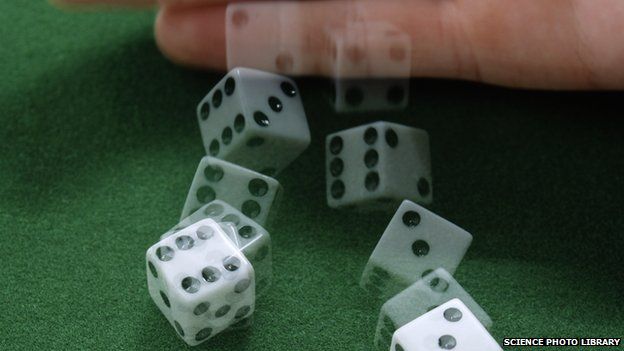Gambling addiction linked to brain reward system
- Published

The 'high' or feeling of euphoria created by addictive behaviour is less obvious in the brains of problem gamblers, research suggests.
This could make them more prone to addiction as they search harder for an "endorphin rush".
Researchers from London and Cambridge scanned the brains of 30 people to find out how their reward systems responded.
The paper was presented at the European College of Neuropsychopharmacology conference in Berlin.
All humans have a natural opioid system in their brains which controls pain, reward and addictive behaviour.
In this small study, which involved 14 problem gamblers and 15 healthy volunteers, scans were used to measure the endorphins released when the opioid system in the brain was stimulated using an amphetamine tablet.
Lead researcher Dr Inge Mick, from Imperial College London, said her work showed two things.
"Firstly, the brains of pathological gamblers respond differently to this stimulation than the brains of healthy volunteers.
"And secondly, it seems that pathological gamblers just don't get the same feeling of euphoria as do healthy volunteers.
"This may go some way to explaining why gambling becomes an addiction."
This is because they have to work harder to get the same feeling of euphoria, or high, as the average person, which then encourages more gambling.
Dr Mick said the findings suggested that the opioid system had a role to play in gambling addictions. The way the system responds may be different in people addicted to alcohol or cocaine, however.
She said the study findings could help develop new treatments for gambling addictions.
Fewer than 1% of adults in the UK have a gambling addiction, equivalent to around 300,000 people.
At present, pathological gambling is treated using drugs such as naltrexone and nalmefene, which have the best results in gamblers with a family history of alcohol dependence.
Dr Mark Griffiths, professor of gambling studies at Nottingham Trent University, said: "This is an interesting study which backs up what we already know from previous research.
"Gambling is a behavioural addiction which is influenced by biological, psychological and social factors.
"As to whether a gambling addiction is different to an alcohol or cocaine addiction, the sample size in the study is small and we need to see more research in this area first."
- Published3 October 2014
- Published9 February 2010
- Published26 March 2014
- Published10 January 2014